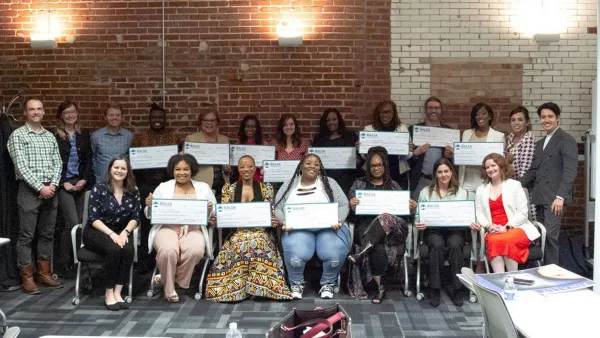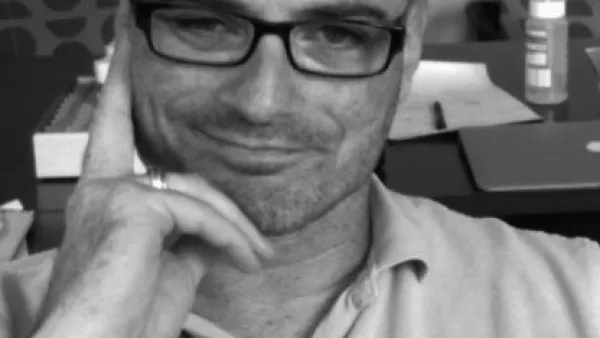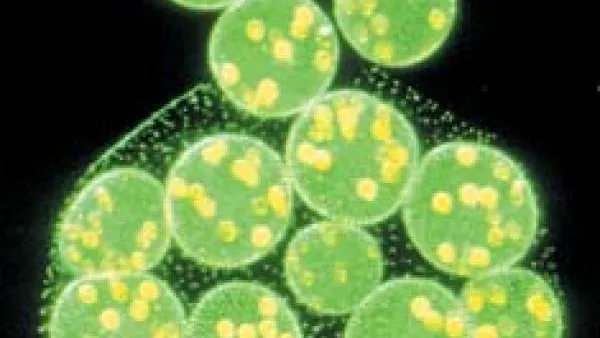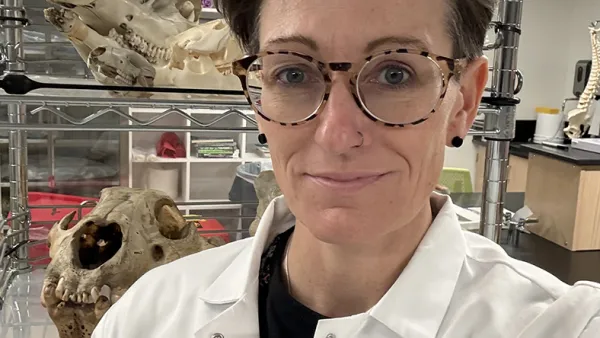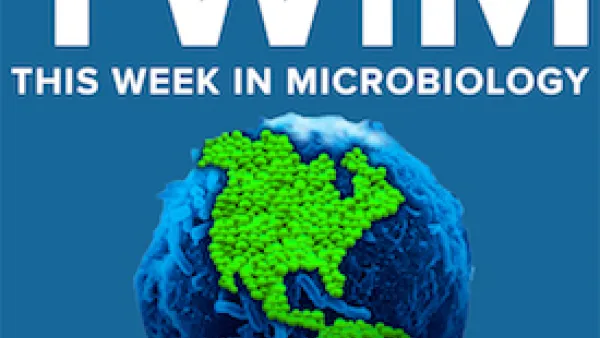Natasha Bilkey, graduate student in Biology and current president of the Biotechnology and Life Science Advising Group (BALSA), talks about the important role BALSA plays to support the St. Louis entrepreneurial community and graduate students looking for opportunities to gain skills outside of the lab.

In December 2010, a group of graduate students and postdoctoral fellows from the Washington University School of Medicine in St. Louis decided to transform their relationship with science. They formed The Biotechnology and Life Science Advising Group (BALSA), a nonprofit scientific consulting group to connect academia and industry, give graduate students real-world experience in the business of science, and strengthen the startup community in St. Louis. In the 12 years that followed, they’ve done just that.
Natasha Bilkey, sixth-year PhD candidate and current BALSA president, first joined BALSA in the third year of her graduate studies, when she started considering career options in industry or business. She had heard of BALSA — it was one of the things that made WashU stand out when she first applied — but had no concept of what consulting looked like in practice. After some friends shared their great experiences, she decided to give it a try.
Her first project was a rapid series of technology assessments for different innovations. It was a big change from her graduate studies on the role of the cytoskeleton in the directional growth of plants. She recalls, “I’m a plant scientist, and none of the products that I was assessing had anything to do with plants. Thankfully, as graduate students, we have that ability to learn and research [new concepts] very quickly.”
Skills from the lab translated well to consulting, and soon enough, she brought what she learned in BALSA back to the lab. As a consultant, she was communicating concepts to clients of all levels of expertise and familiarity. Bilkey learned how to make effective and engaging presentations for every audience. It’s an invaluable skill for anyone looking to take science beyond the bench, whether to a client or an academic conference. As Bilkey noted, “I feel like that's one of the things that every scientist at every level can get better at.”
Even so, it may seem surprising that trainees would take on a time commitment like BALSA during their graduate studies. It asks for 10hours per week of rigorous, highly engaged work. However, an internal study carried out by BALSA showed that consultants graduated slightly earlier and with significantly more publications compared to the rest of the Division of Biology and Biomedical Sciences.
The suite of transferable skills is certainly part of BALSA students’ success. In addition, Bilkey points to the supportive research community at WashU. In particular, she recognizes her mentor Ram Dixit, Professor of Biology and Program Director of Plant and Microbial Biosciences: “He is an amazing mentor. He has always supported me and my professional development, including activities outside of the lab like BALSA. He trusts that I can do my own work on my own time. I think all mentors should do that.”

BALSA Supports the St. Louis Business Community
Since 2010, BALSA has completed over 300 projects. As a nonprofit, they charge minimal fees for consultation. This keeps them accessible to all types and scales of businesses ranging from international companies to nascent startups. Many of these are based in St. Louis, including Integro Theranostics, Auragent Bioscience, and ECHELON Med Tech. All of the profits from consulting go directly to their philanthropic arm, The BALSA Foundation. Every year, the Foundation awards a total of 30 grants of $1000 to support first-time, traditionally underrepresented and under-resourced entrepreneurs in the St. Louis area. The BALSA officer board attends these award ceremonies, where they connect with entrepreneurs and see the opportunities made possible by their consulting work.
The connections don’t stop there, as Bilkey describes: “Twice a year, we hold pro bono projects where we work with a Foundation winner and do a BALSA project free of charge. It’s important for us to be a resource here in St Louis. Funding these entrepreneurs and maintaining connections with them is incredibly rewarding work.”
Consulting Shows a Cultural Shift in Science
As more graduate students pursue careers outside academia, the popularity of consulting reveals a shift in what emerging scientists value in their education and career. Consulting tackles immediate problems with short-term projects and clearly articulated endpoints. In contrast, science is a long game. Every page of a paper represents months of careful work and endless surprise, and discoveries can take years or decades to translate into clinics, production, or the broader scientific canon. These timelines are by necessity and emphasize the value of this essential work. However, today’s trainees may see consulting as a way to apply scientific thinking to other kinds of problems. In particular, scientific consulting solves problems with real-world, tangible outcomes for people and the places where they live and work.
This matters because science has historically had a hard time rooting itself in place. It’s common for trainees to move states or even countries between undergraduate and graduate programs; the pursuit of higher academic positions sends scientists even farther afield. Given this, it can be challenging for students to fully engage with where they are. Many feel as if they need to wait to be settled or stable before making a place into a home — a process defined by investing in a place’s wellbeing and future. By encouraging students to lend their academic skills as a resource, consulting groups forge a direct connection between science and the community.
In this light, BALSA’s broader role in tackling some of science’s oldest and most intractable problems becomes clear. Bilkey describes how BALSA serves as a model: “[Consulting] groups like BALSA have looked up to us when starting their own organizations. People see our reputation, and they see the potential of graduate students to take on new roles and explore different career paths through consulting. They reach out to us to say: we think the work you’re doing is amazing, and we want to do it too.” Given BALSA’s success, it’s easy to see a future where these kinds of reciprocal relationships — between academia and industry, science and business, trainees and entrepreneurs, mentors and mentees — become the norm.
After three years with BALSA, Bilkey has built the foundation for a strong, dynamic future in scientific consulting. Following graduation, Bilkey will be an associate consultant for McKinsey & Company in their St. Louis office. Though she will pass on the mantle of president, Bilkey will stay a vital part of the broader BALSA community as an alumna.
Bilkey emphasizes that alumni are always welcome to reach out and reconnect: “I'd love to hear about how their experience in BALSA helped them in their current career. I hope that people will be happy to see that we are still thriving in the BALSA Group.”
To learn more about BALSA and its services, visit their website at balsa.org.
